Advocate for Real Recovery
- Nov 12, 2014
- 2 min read

Take Action: The Klamath National Forest recently proposed a massive post-fire logging operation throughout some of the most important watersheds on the north coast. The Westside project targets up to 43,338 acres concentrated in Late-Successional Reserves (old forests), Riparian Reserves (streamside forests), in Wild and Scenic River corridors and within Northern spotted owl critical habitat.
This summer, fire burned through 200,000 acres of the Mid Klamath watershed, three-quarters of which were low to very low severity. While the fires burned—a necessary and important forest process in the Klamath Mountains—fire suppression efforts left a long-lasting mark on the landscape. Bulldozers marched through the forest creating wide and often ineffective firebreaks stacked with slash and denuding untold miles of ridgelines.
While the proposed cuts are bad in their own right, they are especially egregious in light of the recent past fires and intense fire suppression activities surrounding the Marble Mountain Wilderness Area. Further, there are past, present and proposed future timber sales throughout the region. The additional logging proposed in the Westside project would diminish crucial wildlife connectivity, like the Grieder Creek corridor that links contiguous habitat to and from the Marble Mountain Wilderness.
The Klamath National Forest is central to the Klamath/Siskiyou bioregion and is a treasure worth protecting. It is a biodiversity hot spot, supporting a wide variety of unique animals and plants including the endangered Northern spotted owl, Pacific fisher, Humboldt marten, and California wolverine. The cool, clean waters of the area protect California’s most robust salmon runs. Preserving intact forests in this region is also a local solution to climate change. The bioregion contains some of the highest biomass-dense forests in North America, sequestering carbon and storing carbon long after a fire.
Fire is a necessary component of healthy forest ecosystems. EPIC is currently engaging with the Klamath National Forest on a programmatic and project-by-project level to ensure sensible fire management. Post-fire logging is devastating for our wildlife, and wild places. The agency should engage with local community partners like the Western Klamath Restoration Partnership to work towards long-term fire strategies. Comments are due by November 14th. We need your help. Please help us advocate for real recovery.
For more information on fire’s role in our forests and the harmful effects of post-fire logging, please visit our website.


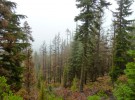
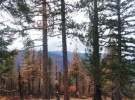
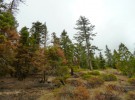
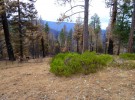
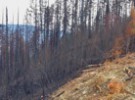



Comments